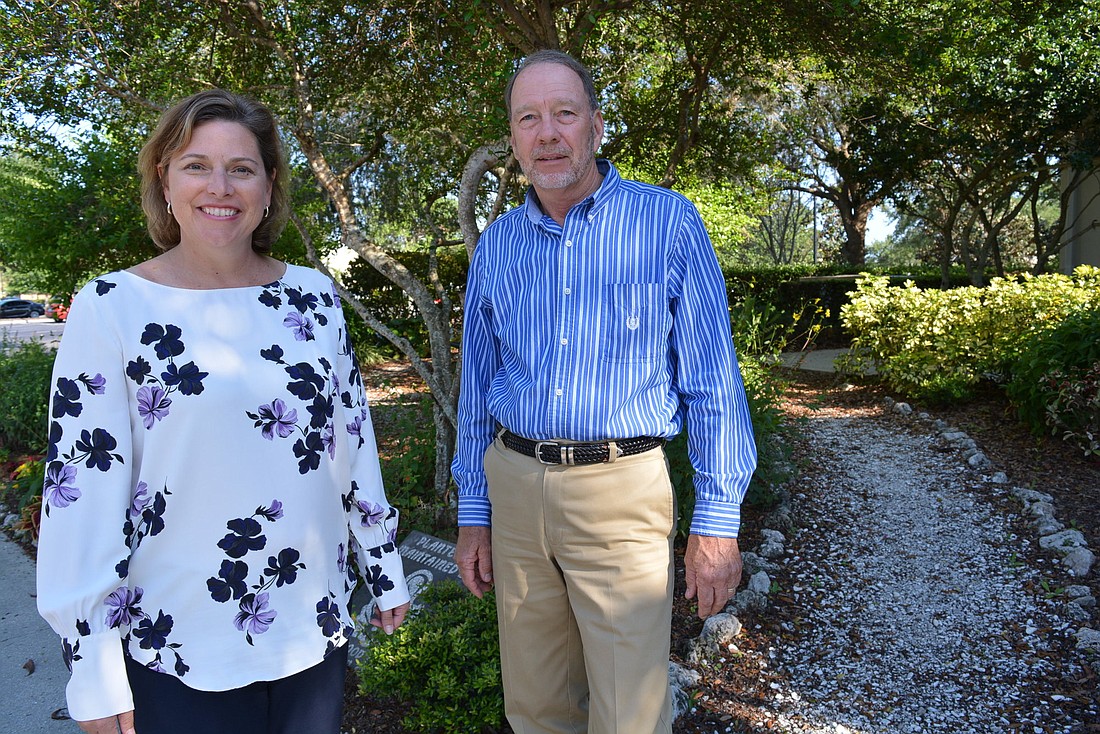- November 16, 2024
-
-
Loading

Loading

Residents of Phase 1 Lakewood Ranch have a chance to improve their lawn health and help save money on community development district assessments.
What’s the catch?
There isn’t one. It won’t even cost them anything.
Braden River Utilities, Lakewood Ranch’s irrigation water utility, has partnered with the Southwest Florida Water Management District on a program to install about 1,000 soil moisture irrigation controllers throughout the Greenbrook, Riverwalk, Summerfield and Country Club communities.
BRU, a subsidiary of Lakewood Ranch developer Schroeder-Manatee Ranch, is fronting the costs and splitting them with SWFWMD so there is no out-of-pocket expense to homeowners. All homeowners have to do is sign up at Lakewood Ranch Town Hall.
Soil moisture sensor systems measure moisture content of the soil and cut off irrigation if the ground is moist enough, so they only run when water is needed.
BRU official Bob Simons said studies show SMS systems can save between 25-30% in water usage and this $297,000 program is expected to conserve about 55,000 gallons per day on water used for outdoor irrigation.
“Conservation — that’s really what this is all about,” Simons said.
From a dollars-and-cents standpoint, Lakewood Ranch Community Development Districts 1, 2, 4 and 5 (Summerfield/Riverwalk, Greenbrook and most of Country Club) dedicate 15.5-21.1% of their annual budget dollars — about $1.8 million — to irrigation of common areas and individual properties. Those costs are spread across about 5,500 units.
Any reduction in usage results in cost savings, Lakewood Ranch Town Hall Executive Director Anne Ross said.
“That savings transfers to your assessments each year,” Ross said. “The payment of the irrigation water is handled through the district assessments. The more people who conserve, the more money can be saved on assessments.”
The program is a first-come, first-serve basis. So far, about 850 controllers have been reserved and another 250 remain available.
After a resident signs up for the program, BRU coordinates with installers, who will contact and schedule installations with homeowners directly, Simons said.
After systems are installed, homeowners with the systems still must follow Lakewood Ranch’s watering schedule, but have a second optional day of watering for their yards. The system would turn on automatically if water is needed, but remain off if it is not.
Those without SMS systems can only water once per week.
BRU, SWFMD and Town Hall partnered for a similar program in 2013, but residents had to pay roughly $400 for the systems upfront and were later reimbursed. Only 222 of 400 available were installed at that time, Ross said.
This time, BRU has streamlined costs and contractor fees so it is paying about $292 per system, allowing it to install more than before.
In residential Phase 2 Lakewood Ranch, which includes areas within the Lakewood Ranch Stewardship District — generally north of State Road 70, east of Lorraine Road and south of University Parkway — SMR already requires builders to install soil moisture sensor irrigation systems, Simons said.
In Country Club at Lakewood Ranch, Community Development District 6 (known as Country Club West) uses its own well system for irrigation and does not use BRU’s reclaimed water supply.